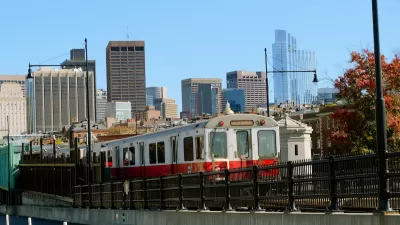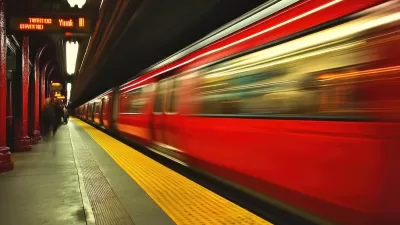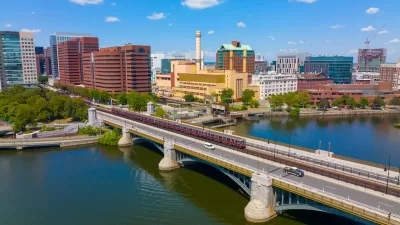The board voted to include the T’s on-demand paratransit service in the discount program, prompting concerns about cost.

The Massachusetts Bay Transportation Authority (MBTA) board approved a new 50 percent discount for low-income riders on its transit services, including paratransit service, reports Bruce Mohl for CommonWealth Beacon. “Details on enrollment and income verification are still being worked out, but the half-off fare will be available to anyone earning less than 200 percent of the federal poverty level, which is about $30,120 for a single person or $62,400 for a family of four.”
T officials expressed concern about including the paratransit program in the discount, which is expected to increase ridership in a system already shortstaffed. The RIDE program is projected to cost “well over half” of the total discount fare program cost. “Gov. Maura Healey in her budget proposal for the coming fiscal year included $45 million collected from the millionaire tax to help pay for the low-income fare in its first year of operation. It’s unclear whether the House and Senate will support that level of funding in the coming fiscal year, let alone in future years.”
According to Brian Kane, the executive director of the MBTA Advisory Board, “the average cost to the T of a RIDE trip in the core service area is $104. Stiehler said the average cost to the T per trip in the core service area is $72, while the current fare is $3.80.”
FULL STORY: MBTA board approves low-income fare

Planetizen Federal Action Tracker
A weekly monitor of how Trump’s orders and actions are impacting planners and planning in America.

Congressman Proposes Bill to Rename DC Metro “Trump Train”
The Make Autorail Great Again Act would withhold federal funding to the system until the Washington Metropolitan Area Transit Authority (WMATA), rebrands as the Washington Metropolitan Authority for Greater Access (WMAGA).

The Simple Legislative Tool Transforming Vacant Downtowns
In California, Michigan and Georgia, an easy win is bringing dollars — and delight — back to city centers.

The States Losing Rural Delivery Rooms at an Alarming Pace
In some states, as few as 9% of rural hospitals still deliver babies. As a result, rising pre-term births, no adequate pre-term care and harrowing close calls are a growing reality.

The Small South Asian Republic Going all in on EVs
Thanks to one simple policy change less than five years ago, 65% of new cars in this Himalayan country are now electric.

DC Backpedals on Bike Lane Protection, Swaps Barriers for Paint
Citing aesthetic concerns, the city is removing the concrete barriers and flexposts that once separated Arizona Avenue cyclists from motor vehicles.
Urban Design for Planners 1: Software Tools
This six-course series explores essential urban design concepts using open source software and equips planners with the tools they need to participate fully in the urban design process.
Planning for Universal Design
Learn the tools for implementing Universal Design in planning regulations.
Smith Gee Studio
City of Charlotte
City of Camden Redevelopment Agency
City of Astoria
Transportation Research & Education Center (TREC) at Portland State University
US High Speed Rail Association
City of Camden Redevelopment Agency
Municipality of Princeton (NJ)





























